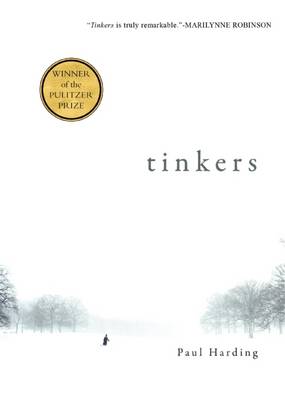
Whitney @ First Impressions Reviews
Written on Oct 29, 2010
George Washington Crosby, a lover of the workings of clocks lies dying and reflects upon his life. George had a very different childhood, his father was a traveling salesman and also epileptic. Every evening the family would wait for Howard to return before starting dinner until one night he didn't come home.
Howard and his wife, Kathleen find ways to hide his epilepsy from their children, the blood from severe convulsions, sudden tiredness or a dazed look with simple white lies. That is until they witness a grand mal seizure that questions the safety of the family.
"There was the ring of pots and buckets. There was also a ring in Howard Crosby's ears, a ring that began at a distance and came closer, until it sat in his ears, then burrowed into them. His head thrummed as if it were a clapper in a bell. Cold hopped onto the tips of his toes and rode on the ripples of the ringing throughout his body until his teeth clattered and his knees faltered and he had to hug himself to keep from unraveling. This was his aura, a cold halo of chemical electricity that encircled him immediately before he was struck by a full seizure."
"What is it like to be full of lightning? What is it like to be split open from the inside by Lightning? Howard use to imaging that it was like the rupture of a fit. Although he never remembered them, he had the sense that, although there was cold before the chills after, during his seizures his blood boiled and his brain nearly fried in its skull pan. It was as if there were a secret door that opened on its own to an electric storm spinning somewhere out on the fringes of the solar system."
I am epileptic myself and grew an immediate liking towards Tinkers, not necessarily because I could relate but because Paul Harding did what I felt to be a accurate portrayal of the disorder in both descriptions and a sense of how it was viewed in the 1920s. His writing is so elegant and puts the experience of an epileptic convulsion in to delicate dialect, with a plethora of excruciating detail. As for the view of the 1920s I will only touch on briefly, so as not to give too much away but is exceedingly accurate and pulled at my heartstrings under the realization that the actions were true and took place under a century ago.
Even though I am focusing on the neurological side of this novel there is much more to it. Tinkers also possesses an understanding of forgiveness, acceptance and fulfillment in ones life and circumstances. For being such a petite novel Tinkers is a very powerful read.
